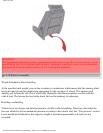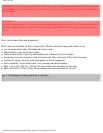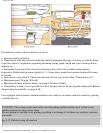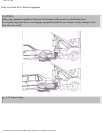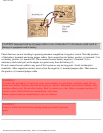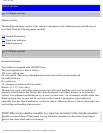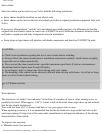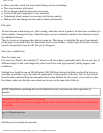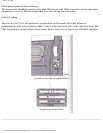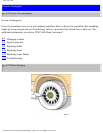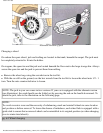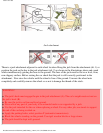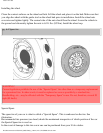
1993 Volvo 960
● Drive smoothly: avoid fast starts, hard braking and tire screeching.
● Tire wear increases with speed.
● Do not change wheel location unless necessary.
● Correct front wheel alignment is very important.
● Unbalanced wheels impair tire economy and driving comfort.
● Hitting curbs can damage the tires and/or wheels permanently.
Flat spots
All tires become warm during use. After cooling, when the vehicle is parked, the tires have a tendency to
distort slightly, forming flat spots. These flat spots can cause vibrations similar to the vibrations caused
by imbalanced wheels.
They do, however, disappear when the tire warms up. The degree to which the flat spots form depends
on the type of cord used in the tire. Remember that, in cold weather, it takes longer for the tire to warm
up and consequently longer for the flat spot to disappear.
Snow tires, studded tires
Tires for winter use:
Use snow tires fitted to the standard 15" wheels on all four wheels (preferably steel). Do not mix tires of
different design, as this could negatively affect overall tire road grip especially during slippery road
conditions!
Studded tires should be run-in 300-600 miles (500-1000 km) during which the car should be driven as
smoothly as possible to give the studs the opportunity to seat properly in the tires. The car tires should
have the same rotational direction throughout their entire lifetime. In other words, if you wish to rotate
the wheels, make sure that the same wheels are always on the same side of the car.
NOTE: Regulations governing the use of studded tires may vary from one state or province to
another.
WARNING! Special wheel rims for air dams
Only special wheel rims, tested and approved by Volvo, are suitable for use with the air dam installed
on the 960.
pg. 5:4 Wheels and tires
Checking and correcting tire pressure
file:///K|/ownersdocs/1993/1993_960/93960_5_1.html (3 of 5)12/30/2006 9:47:06 AM



